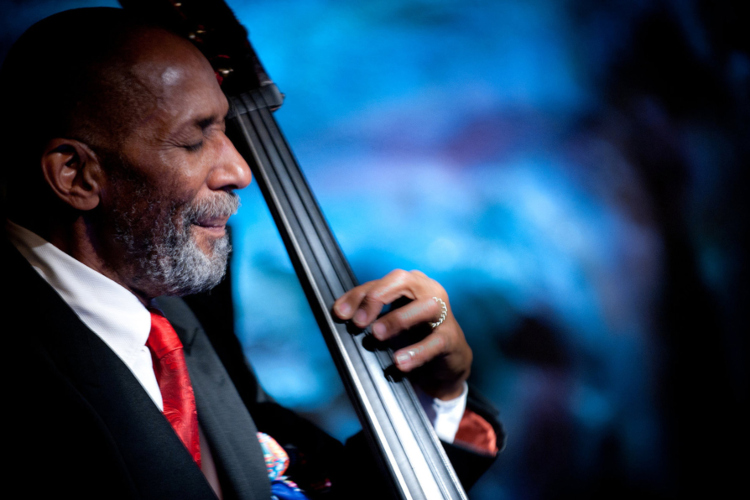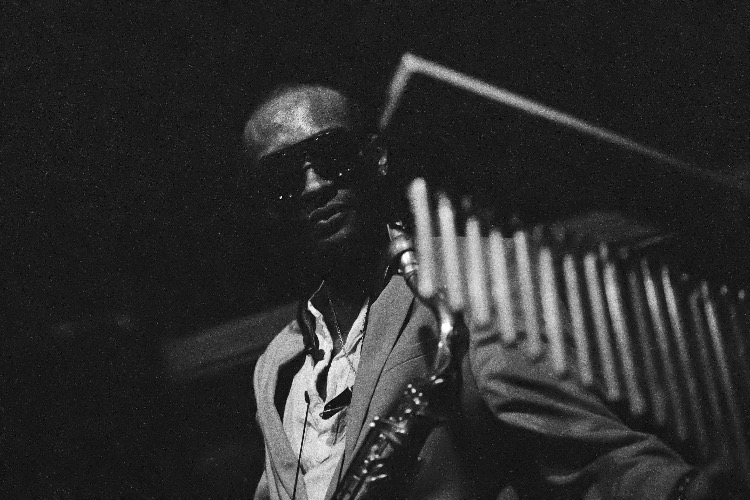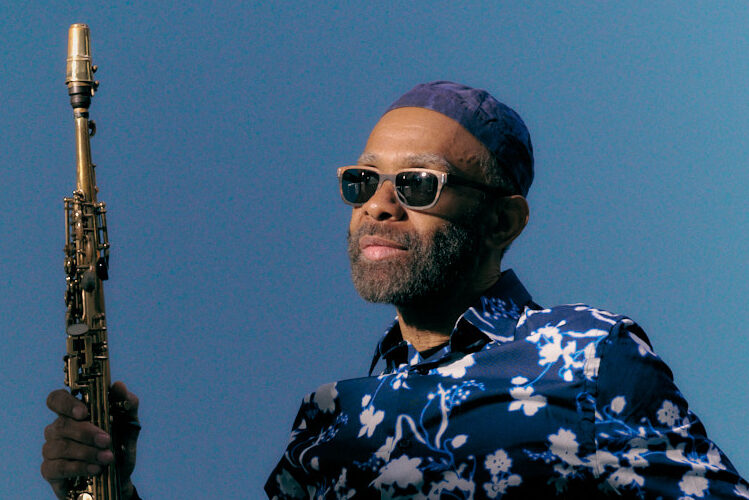All Connected: A Conversation with Ron Carter (Part Two)
|
Getting your Trinity Audio player ready...
|
We continue our conversation with Ron Carter by discussing his Foursight Quartet’s upcoming performances at both Carnegie Hall and the Newport Jazz Festival, his musical explorations of other cultures, and the power of music and education. You can read part one of our conversation here.
PostGenre: So far, we have discussed two – the octet and the Golden Striker Trio – of your three groups that will perform at Carnegie Hall. The third is your Foursight Quartet. How did the Quartet come together?
Ron Carter: The quartet is another view of the Miles Davis Tribute Band but with only four players. I still like playing with a horn player despite how long I’ve had the Golden Striker Trio with no horns. I like the challenge of hearing something different. I’ve purposely chosen musicians who will help me maintain this curiosity – James Greene on saxophone, Rene Rosnes on piano, and Payton Crossley on drums. Each of those three has played with me through various ensembles over the past twenty-five years or so. And right before the pandemic, the Quartet released two Live at Stockholm (MVD, 2019) records. They are fantastic. Not only the music itself, but the audio quality is to die for if you pardon that expression.
I like the quartet format. I like the responses, or lack of responses, from those players as we play together more. Hopefully, as the world opens up, we will continue to have the kind of fun experimenting musically.
PG: While you have led larger groups, including your big band, most of your groups have been smaller settings – duos, trios, and quartets. Is that because you feel there is a better level of communication with a smaller group?
RC: No. The emphasis on smaller groups has nothing to do with my liking or disliking certain sized groups. It mostly comes down to budgeting, and that smaller groups cost less.
PG: Later this summer, the Foursight Quartet will perform at the Newport Jazz Festival.
RC: Finally.
PG: Why do you say “finally”?
RC: Well, I’ve performed with the Golden Striker Trio at Newport a few times and it went very well each time. I understand that the Festival’s promoters’ impulse to continue to invite back the trio given the great response the group received. But this will be the Quartet’s first time at Newport. I’m looking forward to sharing that group and its music with a whole new audience.
PG: You have been to Newport several times since you first performed there with Miles Davis in 1965. What do you find special about the Newport Jazz Festival as a performance venue?
RC: In one sense, it’s another gig. But in another, it is very special. You’re outdoors in the summertime, in a gorgeous place across from a bay. The audience there is generally great. And the Newport booking people, whoever they ultimately are, have made it a priority to present top-flight talent. That includes musicians coming from very far away for their performances. As a result, there is always wonderful music there.
PG: Since you mentioned the Festival’s organizers, do you feel things will be different now that [Newport Jazz Festivals founder] George Wein has passed?
RC: It will be different, I’m sure. But it’s premature to say how things may change.
PG: Also at Newport this summer is the Mingus Big Band. This year marks the 100th anniversary of Charles Mingus’ birth. You worked with him at some point, correct?
RC: We made a record together with a lot of people. I’m not sure I ever saw the results of that recording session. I’m sure it is out there but I never really listened to it. If you find a copy of that performance, please feel free to send it to me so I can add it to my small collection. [Ed Note: Mr. Carter seems to refer to Mingus’ Teo Macero produced, Let My Children Hear Music (Columbia,1972).]
PG: Did Mingus have much influence on you musically?
RC: Not really, no. Or, at least, no more than anyone else who plays bass.
PG: Though, one thing you have in common with Mingus is a willingness to explore music from other cultures. He visited Colombian music with Cumbia & Jazz Fusion (Atlantic, 1977) and you have explored music from around the globe. For Brazilian music, you have worked with some of its heavyweights: Hermeto Pascoal, Antonio Carlos Jobim, Astrud Gilberto, Airto Moreira, and Flora Purim. And your albums, Patrão (Milestone, 1980) and Orfeu (Somethin’ Else, 1999) explore Bossa Nova. Expanding broader, you recorded four times with Gato Barbieri, including on two of his Latin American chapters. You explored jazz’s African roots with Randy Weston. And you visited Indian and Eastern music with Alice Coltrane and Yusef Lateef. Each of these projects viewed other cultures’ music through the lens of jazz. What are your thoughts on jazz as a melting pot of cultural ideas?
RC: We musicians all use the same notes. We may play them in a different order, or have a different time quality per note. They may not be in the same key, but musicians will find a way to use this common skill level of knowing their scales and how to use them. They’re interested in finding ways to make their music not only more expressive but how different blending brushes can meld the two different concepts. Bob Belden did a thing using a lot of Miles Davis music played by Indian musicians. A really interesting project I was glad to be a part of. One of the things that has helped jazz survive despite a general lack of public interest in the press is the number of musicians who pick up on the space that jazz has shown is possible and have become comfortable adding it to their toolbox.
PG: And one of the commonalities of music worldwide seems to be its ability to be a tool for the oppressed. As an example, you recorded Common Cause (Enja, 1979) with Hungarian guitarist Attila Zoller, who had fled his homeland to escape Soviet tyranny. Or, on another level, you were on the self-titled album (Columbia, 1969) of Moondog, a blind and eccentric musician often overlooked by society. What are your thoughts on the power of music to escape your surroundings?
RC: Well, it depends on a lot of things. Someone truly talented can find an excellent opportunity to express themselves through music. My role in those projects was to be sympathetic to the needs of those artists. In general, music does many things to help people who are otherwise denied the ability to express themselves.
PG: Expanding that thought a bit further, your autobiography Finding the Right Notes (KMW Studio 2014), which you co-wrote with Dan Oullette, addresses how racism continues in our society. At one point in the book, you mention how while your father was gifted at math, he was denied many opportunities to use that skill due to his race. You have been an educator for many years. Do you feel education is a tool to correct continued injustice in our society?
RC: Ultimately, I’m just one teacher out of millions. As a teacher, I have been able to share a one-on-one relationship with my students. In that role, all I can show the students are two things. First, how to play the bass better. And second, how to be a better humanitarian. Of course, I hope that the second of these may lead to some worldwide changes. I hope that it helps somewhat with changing racist laws and making it easier for minorities and people of color to have a level playing field.
PG: So much of education is about impacting younger artists. You have been a part of several recordings with younger artists recently. Brandee Younger’s Somewhere Different (Impulse! 2021) is one example. What are your thoughts on the younger generation of musicians?
RC: They are the historians. They are not afraid to do their own research. And as they do that research, they will often find some of us older musicians who are willing to share our skills on their projects and help the younger musicians go to a space they are seeking. It’s nice to have my prior works remembered by younger artists, especially in a society that too often discourages looking at the past. I am always happy to help younger musicians in whatever way I can and help them wade through the process of making a record.
PG: As a parting thought, do you feel that what attracted you to music years ago is what still draws you to it today?
RC: Absolutely. The sound of music itself is what drew me in and still does. I love the chance to make those sounds on a weekly or monthly basis. I love the work and skill that it takes to make the exact sounds I am looking for; to make the right note choices night in and night out. I also love being able to humanize a B flat seven and working with people who trust your judgment. That does not mean I never question my choices, but I do love finding new things and trying to develop them. I’m happy where I am, and I look forward to May 10th at Carnegie Hall. I can’t wait to share my view of music.
More information on “For the Love of Ron – Ron Carter and Friends: 85th Birthday Celebration” can be found on Carnegie Hall’s website, where you can also purchase tickets to the event.
Read more about Mr. Carter on his website.




One thought on “All Connected: A Conversation with Ron Carter (Part Two)”